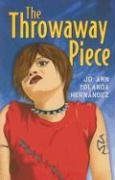 Jewel is shuttled from one foster home to another. But Jewel wasn’t always a “State Kid.” Her mother Angela’s constant search for happiness through a steady stream of unsavory boyfriends leads to the state’s intervention in Jewel’s life. Listening to her new foster mother’s list of “nos”—no drugs, no lying, no stealing, no skipping school, no boys in or out of the house, no being late—Jewel realizes that her mother said “yes” a lot. Probably too much. She remembers saving Angela’s life when one of many boyfriends beat her, trying to hide another boyfriend’s attempts to rape her when she was fourteen, and being sent to a foster home to please the latest boyfriend. But still, Jewel worries about her mother and knows that she will once again pick up the pieces when the latest jerk leaves. Bit by bit Jewel’s life begins to change for the better after her latest move to a new foster home and school. Although most people can’t see past her tough “State Kid” façade—spray-painted hair, heavy make-up, ripped clothing and unlaced shoes—her English teacher realizes there’s more to her then meets the eye. He convinces Jewel to tutor a fellow student who needs help with math, and gradually she learns how to make friends. In the process, she touches the lives of many people around her, including her social worker, teachers who believe in her, her new-found, tentative friends, and even their parents. But when she’s forced to choose between her life-long job—taking care of her mother”—and doing what’s right for herself, old habits and loyalties are hard to break. Jewel is sure that this time, she can save her mom. But will she be able to save herself?
Jewel is shuttled from one foster home to another. But Jewel wasn’t always a “State Kid.” Her mother Angela’s constant search for happiness through a steady stream of unsavory boyfriends leads to the state’s intervention in Jewel’s life. Listening to her new foster mother’s list of “nos”—no drugs, no lying, no stealing, no skipping school, no boys in or out of the house, no being late—Jewel realizes that her mother said “yes” a lot. Probably too much. She remembers saving Angela’s life when one of many boyfriends beat her, trying to hide another boyfriend’s attempts to rape her when she was fourteen, and being sent to a foster home to please the latest boyfriend. But still, Jewel worries about her mother and knows that she will once again pick up the pieces when the latest jerk leaves. Bit by bit Jewel’s life begins to change for the better after her latest move to a new foster home and school. Although most people can’t see past her tough “State Kid” façade—spray-painted hair, heavy make-up, ripped clothing and unlaced shoes—her English teacher realizes there’s more to her then meets the eye. He convinces Jewel to tutor a fellow student who needs help with math, and gradually she learns how to make friends. In the process, she touches the lives of many people around her, including her social worker, teachers who believe in her, her new-found, tentative friends, and even their parents. But when she’s forced to choose between her life-long job—taking care of her mother”—and doing what’s right for herself, old habits and loyalties are hard to break. Jewel is sure that this time, she can save her mom. But will she be able to save herself?
Learning
Building on Nature: The Life of Antoni Gaudi
Antoni Gaudí grew up in Catalonia, a place of wild beauty. He moved to Barcelona to become an architect, learning the rules of form and structure that buildings were supposed to follow. Yet he never forgot the shapes and colors of his childhood home. Antoni Gaudí turned nature into art, and in the process he revolutionized the world of architecture.
Please Don’t Tease Tootsie
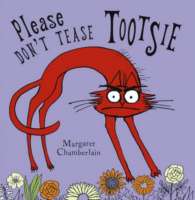
Featuring Tootsie the Cat, Dixie the Dog, and Bitsy Bunny, rhyming text and bold illustrations provide preschoolers with valuable tips and helpful advice on the proper way to care for family pets.
John Patrick Norman Mchennessy: The Boy Who Was Always Late
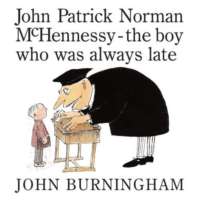
Every day John Patrick Norman McHennessy sets off along the road to learn, and every day strange and improbable happenings make him late. To make things worse, his teacher, Sir, never believes his stories. One day, John Patrick Norman McHennessy is able to make it on time and finds that an improbable and strange thing has happened to Sir. Just how the tables are turned provides a twist every child will relish.
Going to School in India
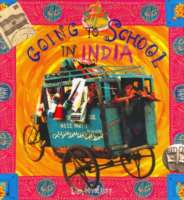
Every school day millions of children go to school. In India “school” can be city classrooms, mountain fields, desert tents, and glowing temples. Lessons are taught in just as many different ways. This book depicts 12 different types of learning situations.
Red Spikes
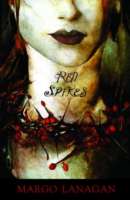
Margo Lanagan’s short stories take place in worlds not quite our own, and yet each one illuminates what it is to be human. They are stories of yearning for more, and learning to live with what you have.
Keeping Corner
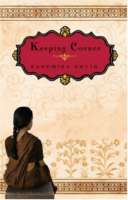
Twelve-year-old Leela had been spoiled all her life. She doesn’t care for school and barely marks the growing unrest between the British colonists and her own countrymen. Her future has been planned since her engagement at two and marriage at nine. Leela’s whole life changes, though, when her husband dies. She’s now expected to behave like a proper widow: shaving her head and trading her jewel-toned saris for rough, earth-colored ones. Leela is considered unlucky and will have to stay confined to her house for a year in the keeping corner. Her teacher offers Leela lessons at home, and she learns about a new leader of the people, a man named Gandhi, who starts a political movement and practices non-violent protest against the colonists as well as the caste system, leading Leela to wonder how she can liberate herself.
The Boy Who Ran with the Gazelles
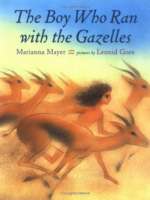
A desert nomad woman has no milk, so brings her pet gazelle for her son to nurse. One day the boy and the gazelle wander off, and the pet gazelle finds a herd of her own kind. She protects the boy and he learns to run and feed himself. Hunters discover and capture him. He is terrified and does not eat. Finally, he escapes to rejoin his herd.
No! That’s Wrong!

When is a hat not a hat? A serendipitous breeze starts off this playful journey which begs the simple question, “When is a hat, not a hat?” Along the way, Rabbit manages to learn a little bit about friendship and the importance of believing in himself.
Tasting the Sky: A Palestinian Childhood
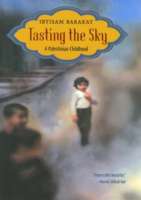
In this groundbreaking memoir set in Ramallah during the aftermath of the 1967 Six-Day War, Ibtisam Barakat captures what it is like to be a child whose world is shattered by war. With candor and courage, she stitches together memories of her childhood: fear and confusion as bombs explode near her home and she is separated from her family; the harshness of life as a Palestinian refugee; her unexpected joy when she discovers Alef, the first letter of the Arabic alphabet. This is the beginning of her passionate connection to words, and as language becomes her refuge, allowing her to piece together the fragments of her world, it becomes her true home.
Featured in Volume II, Issue 2 of WOW Review.
